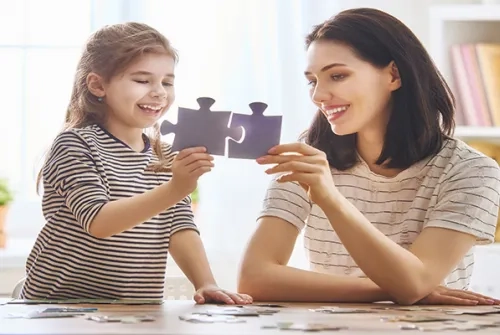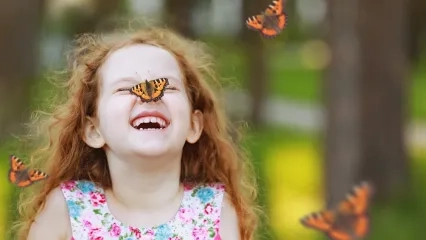Alo Yeditepe
Alo Yeditepe
Do Not Be Overly Anxious and Panicky with Children
While all people are anxious and worried about the danger of coronavirus, children are also waiting for explanations from their families to reassure them. Stating that parents should be very careful in this regard, Child and Adolescent Psychiatry Specialist Assoc. Prof. Dr. Oğuzhan Zahmacıoğlu stated that children learn life from the reactions of their grownups, who are role models, and therefore they should act calmly without panic and fear.
It is a very human behavior for every parent to think about their children and therefore to be concerned about them. However, especially in this period, parents may have different attitudes and behaviors in order not to show their stress and anxiety to their children. Sometimes they may be indecisive about how they should behave. Yeditepe University Hospitals Child and Adolescent Psychiatry Specialist Assoc. Prof. Dr. Oğuzhan Zahmacıoğlu said that parents should not hide the expression on their faces due to their anxiety from their children and stated that it is extremely normal for children to see their parents anxious or a little sullen. On the contrary, he stated that being in a strange comfort in order not to make children feel anything would be the main anxiety factor, "the point to be avoided here is not to be overly anxious and panicked".
Explain the Pandemic to Children by Age Group
Emphasizing that the age range is very important in explaining events such as illness, death, and disaster in life to children, Assoc. Prof. Dr. Oğuzhan Zahmacıoğlu said that there is a big difference between the perception capacity of a 3-year-old child and a 6-year-old child, so the epidemic should be explained differently according to age groups. "There is a big difference in perception capacity between children under the age of 5 and children over the age of 5. The main reason for this is that the abstraction skill starts to form around the age of 5."
Use the Monster Metaphor
Assoc. Prof. Dr. Oğuzhan Zahmacıoğlu said the following about the method that can be used: "Children under the age of 5 record things such as illness, death, and disaster by adapting them to their fantasy world. Children under 5 years of age should be told about the coronavirus epidemic in a game format, without going into detail, in a way they can understand. The virus is like a monster for children of that age. The metaphor of 'monster' can be used. Apart from that, for example, we can focus on not putting our hands in our mouths and noses. We can explain this to the child in a game format as 'if we put our hand to our mouth or nose, we get burned, eliminated or defeated in the game'. For children over 5 years old, things change. Children should be informed about how the virus infects people by drawing shapes and schematizing the virus. When approached in this way, children feel big and cared about. Adolescents can be told everything directly. They can easily be told that this pandemic is deadly and dangerous."
Despite all these explanations, if the child has persistent restlessness, irritability, insomnia, loss of appetite, or nightmares, it is necessary to seek professional support from a psychologist or psychiatrist.
Turn a Crisis into an Opportunity
Stating that parents can turn these quarantine days into an opportunity, Assoc. Prof. Dr. Zahmacıoğlu continued his words as follows: "How we communicate with our children during these difficult days, how we take care of them will be half sweet and half bitter memories that they will remember in the future. Children should be told why the virus is dangerous, why we stay at home, and what the dangers of going out are. While teaching them to be careful, they should not panic and try not to overreact. Otherwise, they may panic too. On the contrary, if we ignore the threat as if nothing is going on so as not to worry the child, if we pretend that nothing is going on so as not to spoil their joy, this is also not appropriate, the essence of the work is to keep the balance well."
Enter their Games
Children try to cope with difficulties through games. For this reason, Assoc. Prof. Dr. Zahmacıoğlu said that it would be good communication to participate in the games, and scenarios they set up or to do the roles they give when they are at home: "This is a good way for them to have a pleasant time and learn about life. In order for the time spent at home not to be completely wasted, if they are school children, we should encourage them to do their lessons and stay in life because it is not clear how long this thing will last, if we let it go, it will become permanent. We should not forget that they are watching us grownups, we don’t need the equipment to do sports together. Doing simple physical movements is a good alternative to cheer up and keep us fit."
Do Not Let Your Stress Become Chronic
Warning that parents should adopt a calm and cool-headed way of communication among themselves in these difficult days, Assoc. Prof. Dr. Oğuzhan Zahmacıoğlu underlined that the incidents of violence in the family may increase these days when staying at home due to social isolation and said, "We should keep our anger under control because children take their parents as an example. In such difficult times, suppressed anxiety and anger can be released much more easily. These days are likely to last for a long time, so we need to pay attention to our behavior. If we do not control our anger, this can lead to a chronic problem and our children may experience permanent psychological damage under this chronic stress and anger expression."
About
Faculty and Year of Graduation:
Marmara University Medical Faculty, 1996
”
See Also
- What is Autism Spectrum Disorder?
- What Does Narcissist Mean? Narcissistic Personality Disorder
- What is Peer Bullying?
- Puberty
- What Causes Sleep Problems in Babies?
- Experts Warn Students Before the Exam!
- Tips for Choosing a Babysitter
- Has Your Child Adapted to School?
- Let the Bonding Between Mother And Child Not Be Sacrificed for Success!
- The Biggest Question for Working Mothers: Who Will Take Care of My Child?
- Time to Learn Responsibilities
- Toy Guide for Your Baby
- Music Therapy
- What is Specific Learning Disability?
- What is a Mental Disability?
- What is Attention Deficit and Hyperactivity Disorder?
- Developmental Disorders in Children
- What is Autism?
- What is Language and Speech Disorders?
Alo Yeditepe




